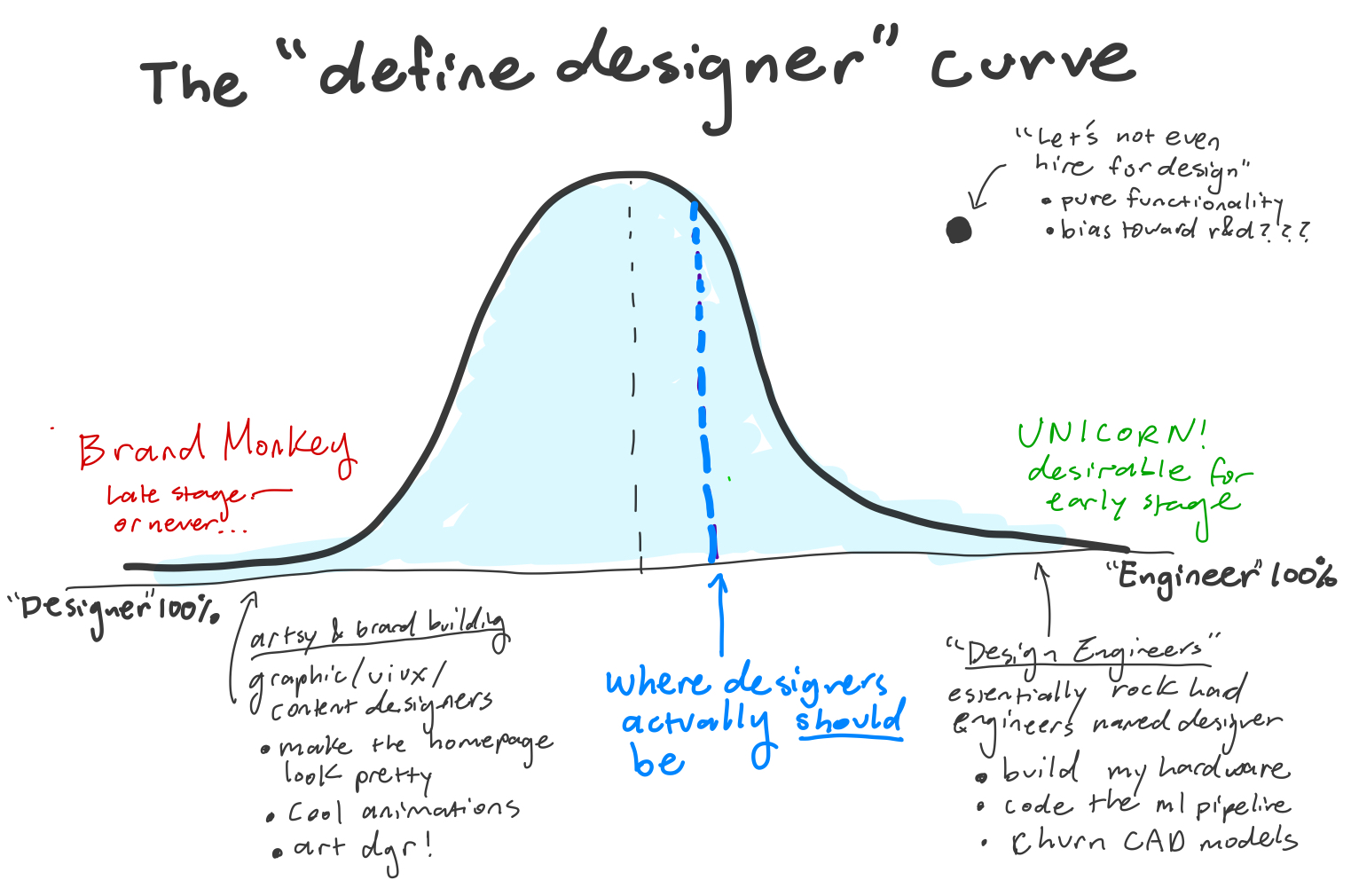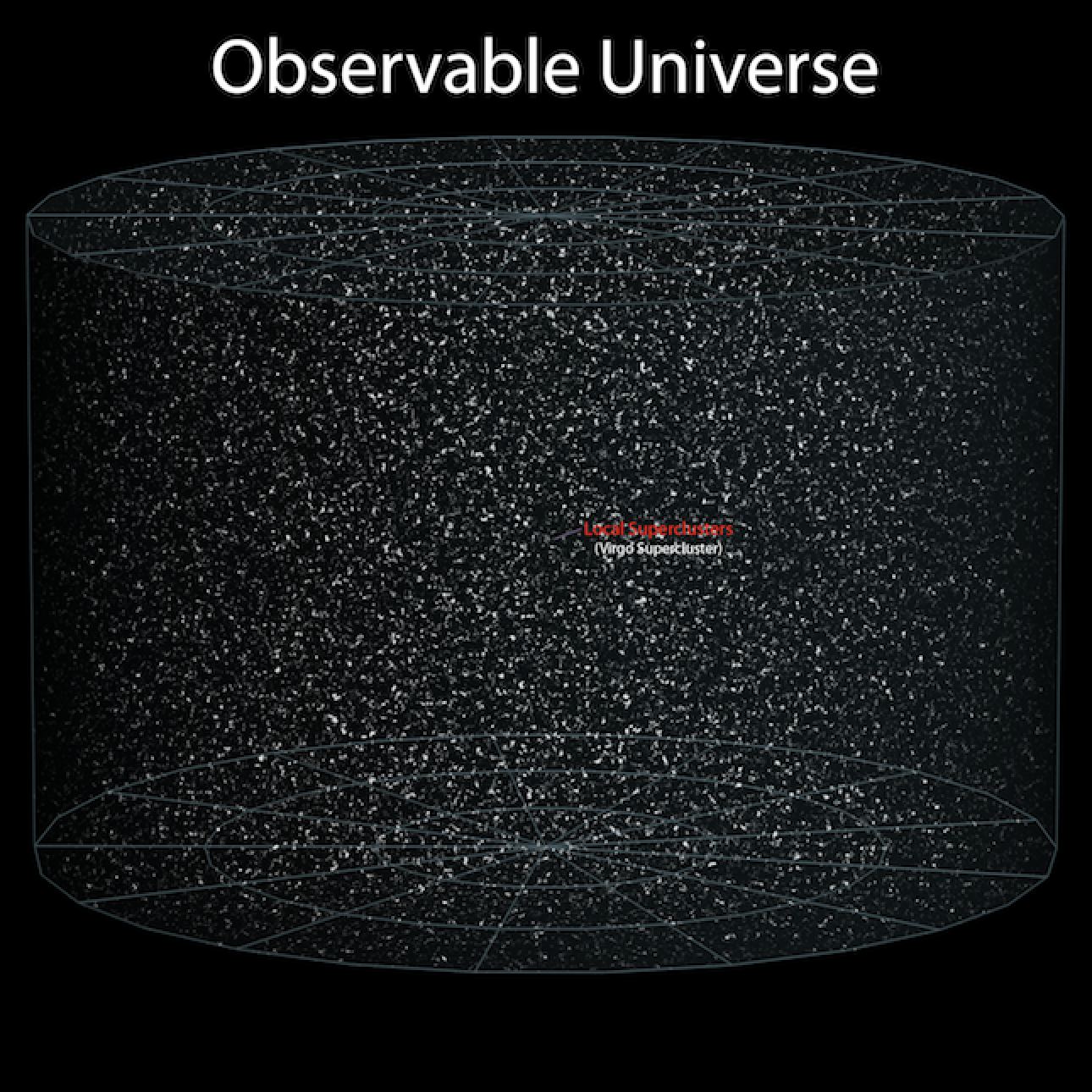paradigm shifts
Jan 18, 2025

generated by NovelAI
analogy
This past month I've reached out to ~30 startups and "interviewed" with about 10. And in every convo, engineering is all we talk about. If you're not an engineer, they do not understand what you do, and you must explain it in the context of engineering. That's not to dismiss their merits, but just to point out an observation I've made. In deep tech, design talent is near nonexistent.
I think we're facing a similar problem to the pre-defense tech boom (early 2010s). Anduril and Palantir outsourced talent from big tech companies. With little previous success in defense tech, any employee making the switch is taking a risk. People often cite Palantir's success to their talent, but lots of convincing had to be done backstage.
How does this translate to design talent in deep tech? There isn't a scarcity of design talent. There are lots of people with high potential to become great designers. The problem is the cultural paradigm. "Designer" is poorly defined and no one really knows what it means. Therefore, there is no interest in it. Will explore this more later.
the deep tech culture
In deep tech, engineering is king. It makes sense though. There are two main reasons why:
- Most deep tech industries are very early stage
- startups are in experimentation not refinement mode with new tech
The driver of this is, I think, a fundamental misunderstanding of design as a "product polisher" not as a foundation of product development. Interpretations of design are skewed: you're either an engineer who knows how to design or a brand monkey who makes graphics and animations.

The designer-engineer interpretation curve
Obviously, there's a problem here. There is no universal definition of design that you'd see in consumer companies (i.e. product or ux designer). In fact, these definitions are just concatenating "design" like a buzzword onto engineering or marketing.
Here's my definition. Design is the medium that enables humans to interact with systems. In defense, these systems are more complex like heads-up displays, conversational interfaces, and multi-agent communication networks. In life or death situations where humanity can literally be on the line — human involvement is a non-negotiable (despite the hype around pure autonomy).
I think its fundamentally wrong to think design just makes things look pretty. If we didn't try to make things human-friendly, all computing systems would turn into a black box — uninterpretable and unusable by the very creators that invented them.
high level
Rigid paradigms exist outside of deep tech. In university, everyone is trying to collect a suite of swe internships. In the corporate world, everyone is trying to climb the ladder and earn $500k "total comp."
In both examples, no one inside the paradigm dares to question it. It makes sense though — it's safe. Yet, this is not the kind of world I'm interested in. A fascinating question is: why do certain outliers step out of this model completely? This makes no sense. Every law of human logic goes against this, and yet certain people — call them crazy or whatever — do it.
shifting the paradigm
Shifting the paradigm is astronomically difficulty on a physical and psychological level. You will constantly question wether it'd be more advantageous just to conform. You will question the pain of rejection-after-rejection, and wether the promise of impact is worth it. No one will understand what you do — and most certainly, no one will believe in it.
What you need to do will be fundamentally illogical. You have to go against common sense and proven methods. So why do some people do it anyway?
methodology
My thesis is quite simple. Paradigm shifts are a result of people motivated by an unbounded vision for
how the world should work. Most people have finite visions like "land an internship at google" or
"become an edtech startup founder at yc". These limits we set for ourselves make some people average and some
exceptional. Finite sets reduce the sample space, while unbounded sets extend indefinitely and redefine what's
possible.
Aside: this is also why I don't think technology alone can independently build new paradigms. Fundamentally,
machines are finite state models that are trained on finite sets of data. Thus, humans will always be
a necessary part of the equation.

Source: Joshua Kennon
Potential ways to shift the paradigm, from observation:
- social orientation: fanatic storytelling (think military general building morale in troops)
- innovation orientation: become a hyper specialist (deep focus) and build the best product
- relationship orientation: build sales skills and adapt your narrative to any audience. Be able to integrate it into their pre-set mental models
- purpose orientation: think interstellar-level sense of unwavering commitment to an "impossible" vision
- humanity orientation: genuinely care about changing the way humans interact with the world
asking the right questions
There's something fundamentally wrong about how we define goals. Formatting things like a bucket list makes it easy to go off-direction and become swayed by peer pressure. It also limits us from questioning these goals.
The missing piece is a grand vision we can design our lives around. This moves us from finite achievement-based goals to something we can consistently make progress on. This helps us ask the right questions.
For example, instead of asking: "How can I build an edTech company?" instead ask "What is the best way to give every child access to high-quality education"? (one person I spoke to joined space-x to solve this problem with starlink to provide universal wifi access — true first order thinking.)
Here's a diagram of how I organize my life based on this framework:

the black sheep: defining progress
How do you define progress when your end-goal is unbounded? An approach to this is
to measure progress based on impact on other people rather than on binary achievements.
Are people thinking about this in a different way? Are more people excited about this field?
Are people's lives getting better because of this? These are all good questions to ask.
At the early stage, a litmus test for this could be how controversial are your ideas? Do I have extreme followers and extreme haters? Obviously there is nuance to this, but it's a good test of wether you're shifting the paradigm significantly.
Overall, as long as you can stay consistently obsessed and curious about the thing you're working on, that in itself is a good benchmark for progress.
tldr;
paradigm shifts are linked to a fundamental quality about human beings: the ability to dream of the impossible. I think everyone should strive for this. Even if you don't want to change the world, having an "unreachable" purpose makes life so much more meaningful and exciting.